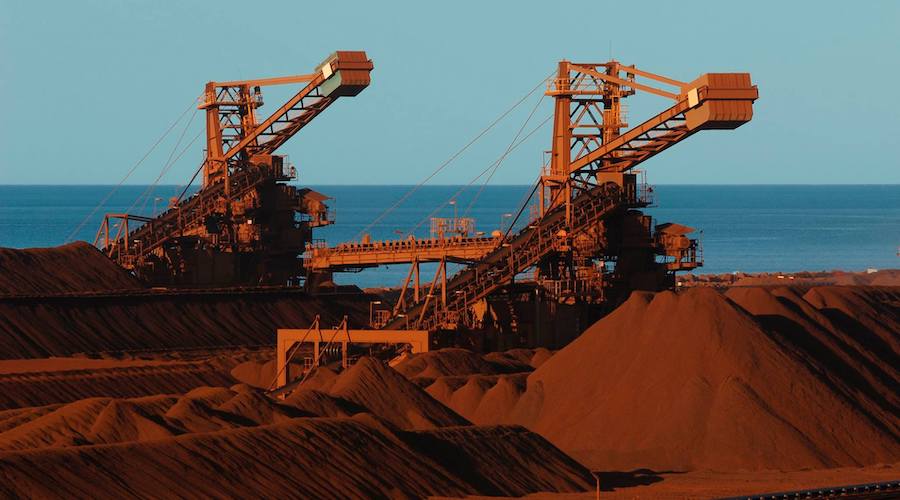Iron ore price marks quarterly losses on China covid, property woes

Dalian and Singapore iron ore marked their second quarterly losses, despite some gains on Friday, as worries over a stringent zero-covid policy and property sector jitters in top steel producer China continued to dominate markets.
However, hopes of sustained policy support for the ailing Chinese economy and increased construction-related demand for steel lent some support to the steelmaking ingredient.
The most-traded January iron ore on China’s Dalian Commodity Exchange closed 0.1% higher at 721.50 yuan ($101.66) a tonne, off the day’s high of 730.50 yuan.
On the Singapore Exchange, benchmark October iron ore was up 0.6% at $96 a tonne, as of 0747 GMT, below session-high $97.55.
In the spot market, the benchmark 62%-grade iron ore bound for China was somewhat steady this week at around $100 a tonne, down 18% from the previous quarter.
Restocking demand ahead of China’s Golden Week holidays beginning Oct. 1 supported iron ore prices, along with steel mills’ increased consumption of the material, analysts said.
The blast furnace capacity utilisation rate in China rose steadily over the last eight weeks to hit 89.08%, as of Sept. 23, the highest since June, Mysteel consultancy data showed.
Electric arc furnaces’ run rates averaged 52.3% in the three weeks ended Sept. 23, rising from 45.83% as of Sept. 2.
“Replenishment of warehouses before the festival is still in progress,” Zhongzhou Futures analysts said in a note.
But overall Chinese iron ore demand may remain subdued in coming months, especially if Beijing sticks to its zero-covid policy, analysts said.
“It is recommended to be bearish in the medium term,” Zhongzhou analysts said.
Rebar and hot-rolled coil on the Shanghai Futures Exchange both fell 0.9%, while stainless steel climbed 1.1%.
Dalian coking coal and coke shed 0.3% and 0.2%, respectively.
There will be no night trading on Friday on the Dalian exchange.
(By Enrico Dela Cruz; Editing by Subhranshu Sahu and Sherry Jacob-Phillips)
{{ commodity.name }}
{{ post.title }}
{{ post.date }}




Comments